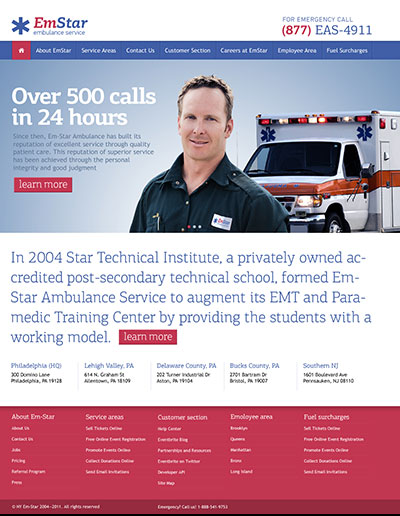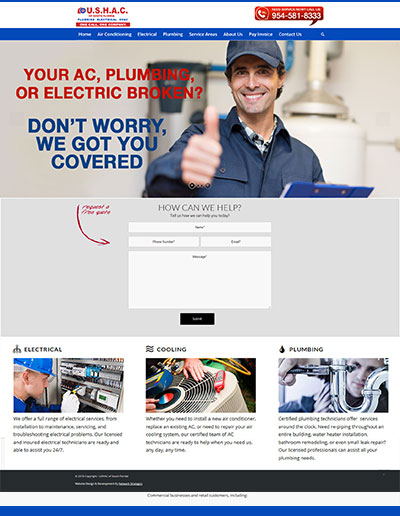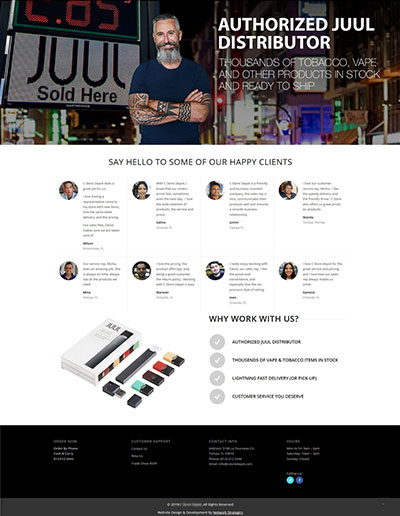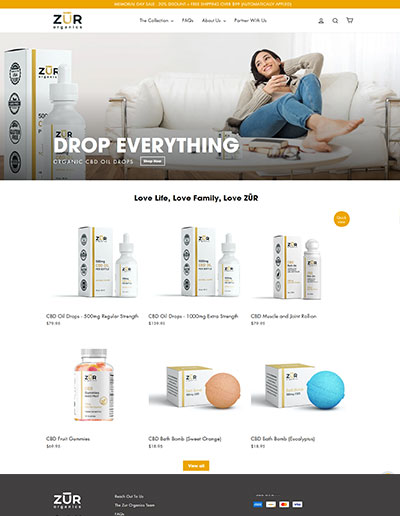We Create Websites that
Lead Generation
We could have designed rockets, but we chose to help our clients with:
Why Businesses Should Use Lead Generation
In today’s competitive marketplace, businesses need to employ effective lead generation strategies to survive and thrive. Lead generation ensures a steady stream of potential customers, providing the fuel for business growth. By attracting interested prospects, businesses can focus their efforts on nurturing these leads and converting them into customers.
Lead generation also provides valuable insights into the market. By understanding who is interested in their products or services, businesses can tailor their offerings to meet customer needs, ultimately leading to better products, improved customer satisfaction, and increased sales.
Moreover, lead generation is more important than ever in the digital age. With consumers increasingly turning to the internet to research and purchase products, businesses that do not have an effective online lead generation strategy risk being left behind.
As a digital agency offering lead generation services, we understand the intricacies of attracting and converting leads. We use a combination of inbound and outbound strategies, data analysis, and creative content to capture the attention of potential customers and guide them along the conversion path. Our goal is to provide our clients with a steady stream of high-quality leads that will fuel their business growth and success.
Need Lead Generation?
Need to talk to a lead generation pro about your business goals?
The Power of Lead Generation
Lead generation is a powerful tool that provides several benefits to businesses. A primary advantage is its ability to create a consistent pipeline of potential customers interested in your products or services. This not only helps businesses maintain a steady flow of customers but also allows them to forecast sales and plan for growth.
Additionally, lead generation is highly targeted, enabling businesses to reach the right audience at the right time. This leads to better quality leads, which are more likely to convert into customers. It also reduces the time and resources wasted on unqualified leads.
Furthermore, lead generation provides valuable data about potential customers. By understanding who is interested in their products or services, businesses can refine their offerings, improve their marketing strategies, and provide a better customer experience. This can significantly increase customer satisfaction and loyalty, leading to repeat business and referrals.
Lastly, lead generation is cost-effective. Rather than casting a wide net with traditional advertising, lead generation focuses on attracting interested prospects. This targeted approach often results in higher conversion rates and a better return on investment.
What is Lead Generation?
Lead generation is a critical marketing strategy that focuses on capturing interest in a product or service for the purpose of developing a sales pipeline. The essence of lead generation is to attract potential customers (leads) who have shown interest in your brand’s offerings. This process often begins by capturing the audience’s attention through targeted content, promotions, or events, then guiding them to provide their contact information voluntarily, effectively converting them from mere prospects into leads.
The lead generation process can be divided into inbound and outbound strategies. Inbound lead generation attracts leads using online content, SEO, and social media, while outbound lead generation reaches out to potential leads through traditional methods such as cold calling or direct mailing, as well as modern techniques like email marketing and targeted advertisements.
Need Lead Generation Services?
Need to improve your marketing strategy? Optimize your website, rebrand or generate leads?, We would love to work together with your project.
Benefits of Lead Generation
Lead generation has numerous advantages for businesses of all sizes:
Higher Conversion Rates
Lead generation strategies aim to attract prospects who have shown an active interest in your product or service. As a result, they are more likely to be in the decision-making stage of the buying process, meaning they’re more likely to convert than those targeted through non-specific marketing efforts. This increases overall conversion rates, providing a boost to sales and revenue.
High Scalability
Lead generation strategies can be scaled up or down based on business needs and resources. If a business is looking to expand, it can ramp up its lead generation efforts to attract more potential customers. Conversely, if resources are tight, it can focus on more cost-effective lead generation tactics to maximize results while minimizing spend. This scalability ensures that businesses can adapt their lead generation strategy to meet their specific circumstances and goals.
Improved Sales Productivity
With a pool of interested and qualified leads at their disposal, sales teams can focus their efforts on nurturing leads and converting them into customers. This streamlines the sales process, improves productivity, and ensures that salespeople can concentrate on what they do best: selling. It eliminates the need for sales teams to cold-call or chase after unqualified leads, increasing efficiency and morale.
Consistent Customer Pipeline
One of the primary benefits of lead generation is that it ensures a steady inflow of potential customers. With an effective lead generation strategy, businesses can create a reliable pipeline of leads, which forms the foundation of consistent sales. This constant stream of leads allows businesses to predict sales trends more accurately, aiding in crucial activities like budget allocation, sales forecasting, and growth planning. It helps the organization maintain a stable operational flow and ensures they are never short of prospective customers.
F.A.Q.
Frequently Asked Questions
What is lead generation and why is it important?
Lead generation is the process of attracting and converting strangers and prospects into people who have indicated an interest in your company’s product or service. It’s a critical component of the sales process because it helps to build a pipeline of potential customers. Lead generation can help businesses reach new audiences, increase brand awareness, build relationships, generate qualified leads, and ultimately close deals.
What are the most effective lead generation strategies?
The most effective lead generation strategies often depend on your industry and target audience. However, some universally effective strategies include content marketing (blogs, eBooks, webinars), search engine optimization (SEO), social media marketing, email marketing, networking events, paid advertising campaigns (like Google Ads or social media ads), and utilizing a lead generation software or service. The key is to provide valuable, relevant content that attracts and engages your target audience, and to optimize your website and content to make it easy for potential leads to take action.
How does content marketing support lead generation?
Content marketing supports lead generation by attracting and engaging potential leads with valuable content. This content can include blog posts, eBooks, infographics, videos, webinars, case studies, and more. By providing content that answers questions or solves problems for your target audience, you can attract qualified leads to your website. Including clear calls-to-action (CTAs) and forms on your content can encourage potential leads to provide their contact information, often in exchange for more valuable content or a free trial, turning them into leads.
What role does SEO play in lead generation?
Search engine optimization (SEO) plays a critical role in lead generation by improving the visibility of your website and content in search engine results. By optimizing your website and content with relevant keywords, meta descriptions, alt tags, and quality backlinks, you can attract more organic traffic from people who are searching for information related to your product or service. Because these individuals are already looking for solutions that your business offers, they are often more qualified leads, increasing the likelihood of conversion.
How can businesses optimize their website for lead generation?
Businesses can optimize their website for lead generation by first ensuring it’s easily discoverable via search engines, which involves implementing good SEO practices. The website should also be easy to navigate, with clear CTAs encouraging visitors to subscribe, download content, contact the business, or make a purchase. Forms should be simple and not ask for too much information at first. Landing pages can be specifically designed to capture leads for certain campaigns, and they should have clear, compelling value propositions and CTAs.
What are lead magnets and how are they used in lead generation?
A lead magnet is a valuable piece of content or service offered for free in exchange for a visitor’s contact information. Common examples of lead magnets include eBooks, whitepapers, free trials, webinars, exclusive discounts, or templates. Lead magnets are used in lead generation to incentivize website visitors to provide their contact information, turning them into leads. The key to a successful lead magnet is ensuring it’s highly relevant and valuable to your target audience.





